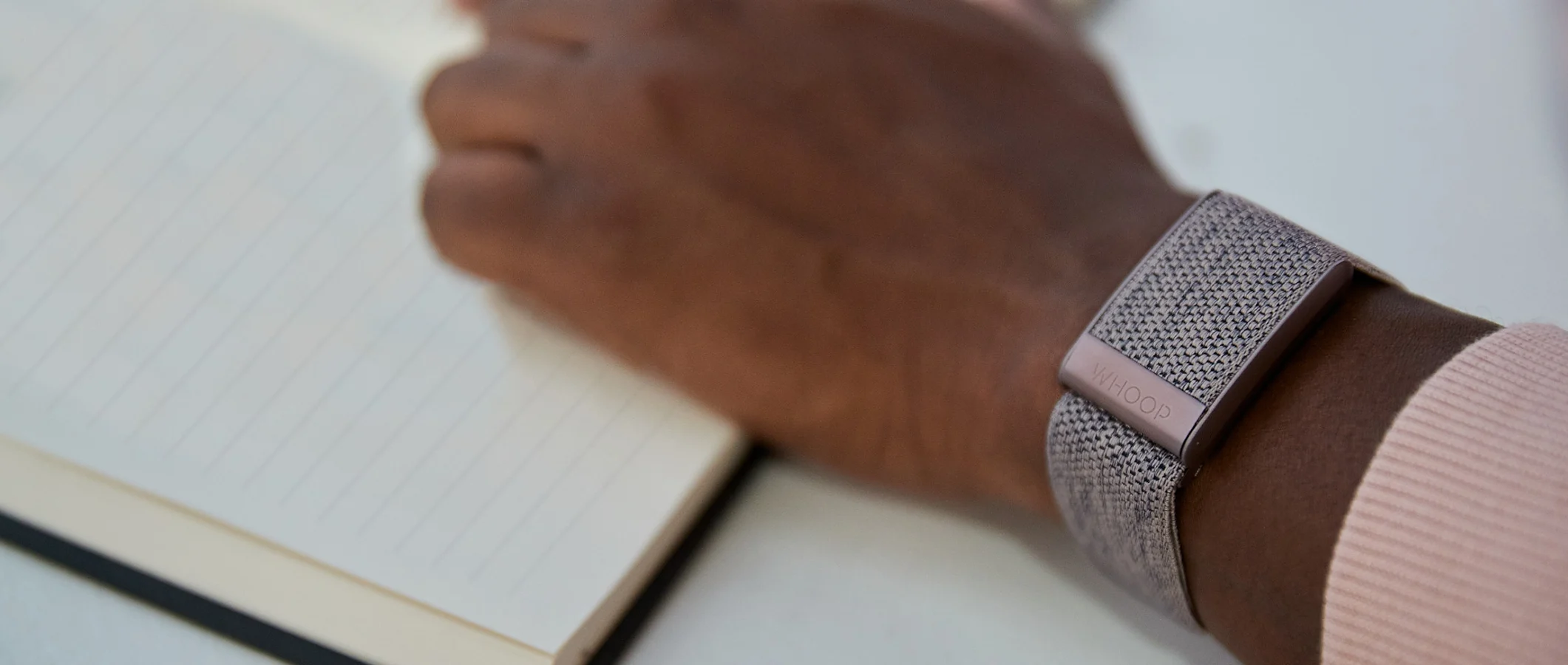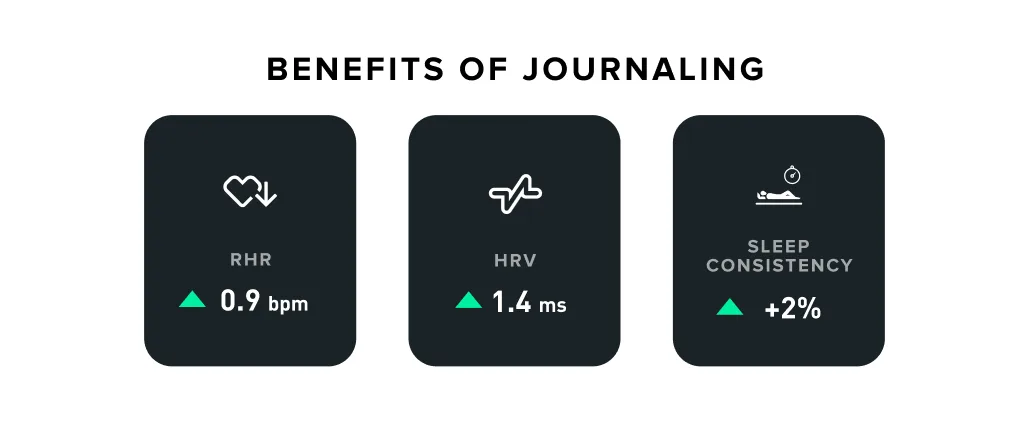Topics
- Article
- Behavior Impact
- Mental Health
Journaling Can Benefit Your Sleep and HRV

We break down how frequently WHOOP members log “journaling” in the app, when they are most likely to do it, as well as the effect it has on their sleep and recovery metrics.
Journaling is one of over 140 actions, choices, and behaviors you can track via the WHOOP Journal in order to gain a better understanding of how various things you do may impact your biometric data. Writing thoughts down in a journal is a popular form of self care for mental health, but an analysis of our data shows it can have potential benefits to your physical health too.
Tracking Journaling in the WHOOP App
About 4% of our members log journaling on a regular basis (answering “yes” or “no” to the question “Journal your thoughts?” 10 or more times over the past 90 days). Looking at anonymous aggregated data, we found that 20-29 year olds are the ones most likely to do it (4.7%), and the percentage decreases slightly with age. It is also more common for females (6.6%) to track journaling than males (3.3%). Of our members who do consistently report journaling, they tend to do it about once every 4-5 days (22.8% of all days on average). Monday is the most popular day of the week for journaling (a “yes” response 29% of the time), then it declines as the week goes on (Saturday is the lowest at 21%). And to no surprise, January is the month of the year when it happens most frequently, in particular the first few days of the month after New Year’s resolutions are made.
Effects of Journaling on Sleep, Heart Rate & HRV
When our members log journaling, their average number of sleep disturbances sees a minor dip from 11.3 per night to 11.2. Additionally, their percentage of restorative REM sleep rises slightly from 24.6% to 24.9% on average (and in turn their light sleep percentage falls from 54.2% to 53.9%). Most significantly, average sleep consistency rises from 70% to 72% on nights members report journaling. This makes sense, if journaling is part of your bedtime routine you likely have more consistent sleep patterns when you stick to it.

When WHOOP members Log journaling they see mild improvements in RHR, HRV & sleep consistency.
Beyond sleep, we found our members have modest improvements in recovery metrics as well after reporting journaling. Heart rate variability rises by an average of 1.4 milliseconds, while resting heart rate drops by 0.9 beats per minute.
Learn what else can help your sleep & recovery
The WHOOP Journal offers a large variety of choices, behaviors, and other variables you can track–ranging from things like getting in some outdoor time during the day, to taking magnesium or wearing a sleep mask at night. Monthly Performance Assessments and in-app insights provide you with detailed analysis of how the behaviors you track may impact your sleep and recovery data.